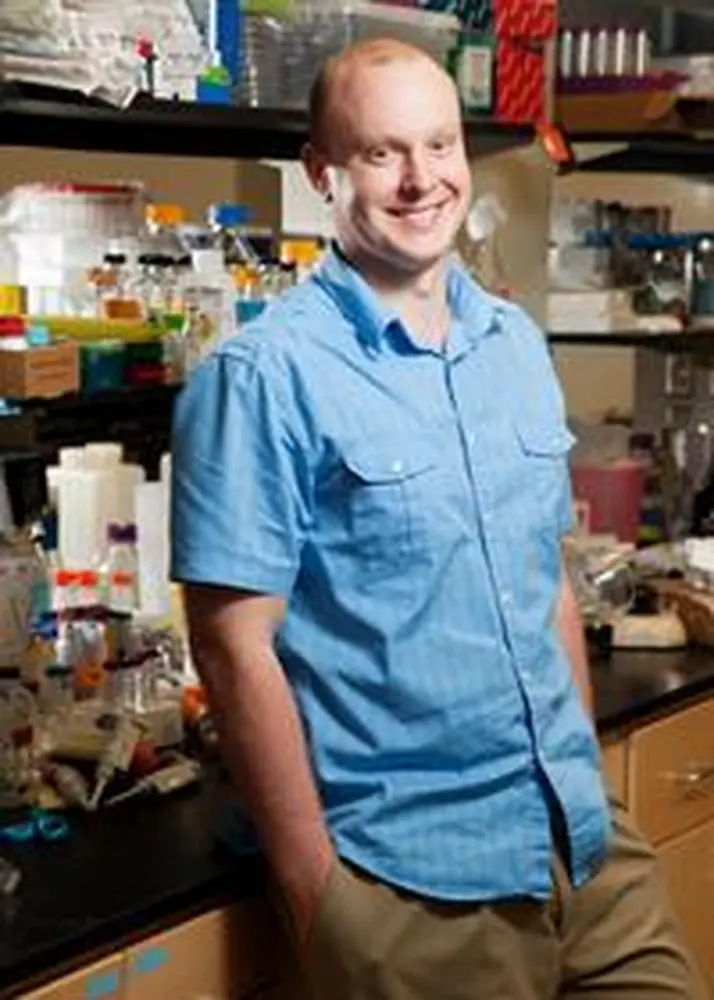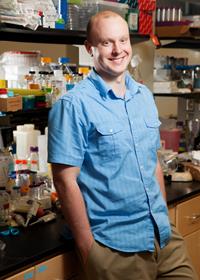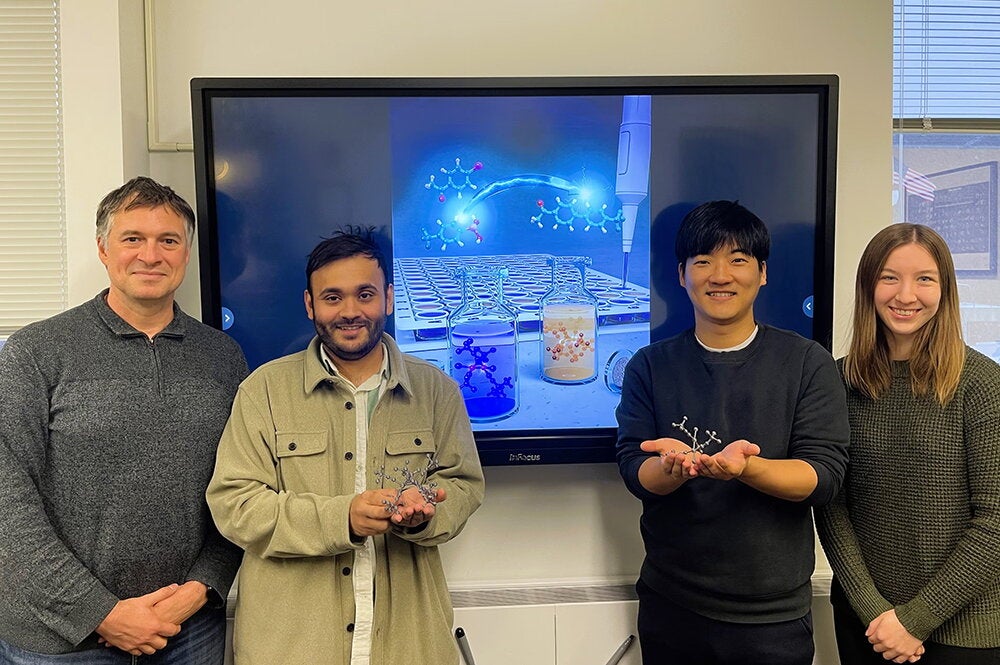

Douglas A. Mitchell, a professor of chemistry at the University of Illinois, is a recipient of the 2011 National Institutes of Health Director’s New Innovator Award. The award recognizes bold ideas from some of the nation’s most promising new scientists.
The $1.5 million award, given over a period of five years, supports young investigators who have proposed exceptionally creative research ideas that have the potential to produce important medical advances.
Mitchell uses chemical methods to study the mechanisms that contribute to bacterial virulence and antibiotic resistance. His current studies focus on the thiazole/oxazole-modified microcins, a class of microbial compounds with profound structural and functional diversity. While some of these compounds have antibiotic or anticancer activity, others are disease-promoting toxins.
Mitchell’s lab is developing a strategy to disrupt toxin biosynthesis in a number of bacterial pathogens. He predicts that this approach will lead to drugs that combat pathogenic microbes without disturbing the symbiotic bacteria that are essential to proper human physiological function. This new class of antimicrobial compounds will be less likely to select for antibiotic resistance in the targeted pathogens than drugs now used, he says.
Mitchell earned his undergraduate degree in chemistry from Carnegie Mellon University in 2002. After a short internship in medicinal chemistry at Merck Research Laboratories, he earned his doctorate at the University of California at Berkeley in 2006. He worked as a postdoctoral researcher with Jack Dixon at the University of California at San Diego. Mitchell joined the U of I faculty in 2009.
The National Institutes of Health is a component of the U.S. Department of Health and Human Services. It is the primary federal agency for conducting and supporting basic, clinical, and translational medical research, and investigates the causes, treatments, and cures for both common and rare diseases.


